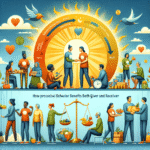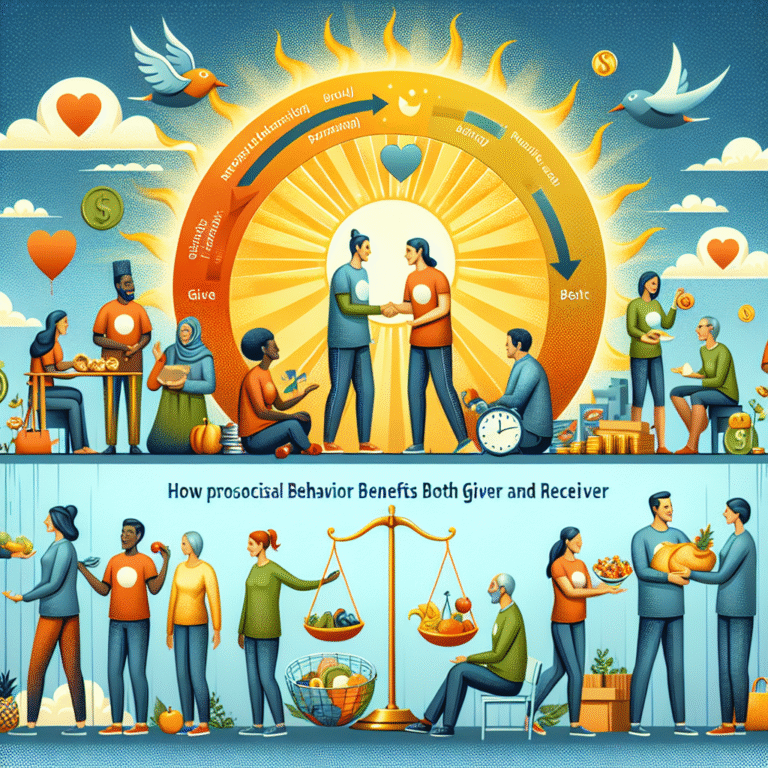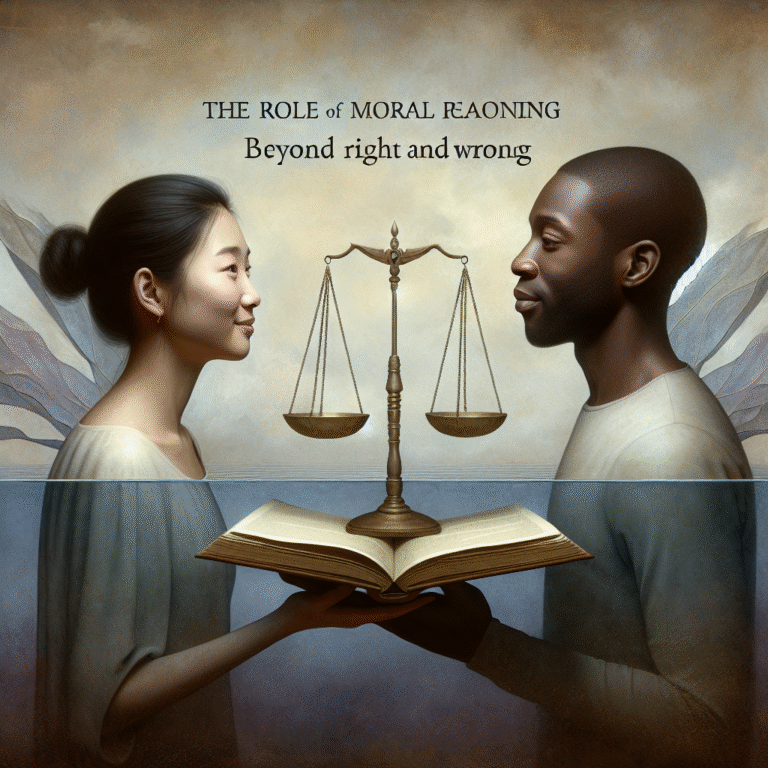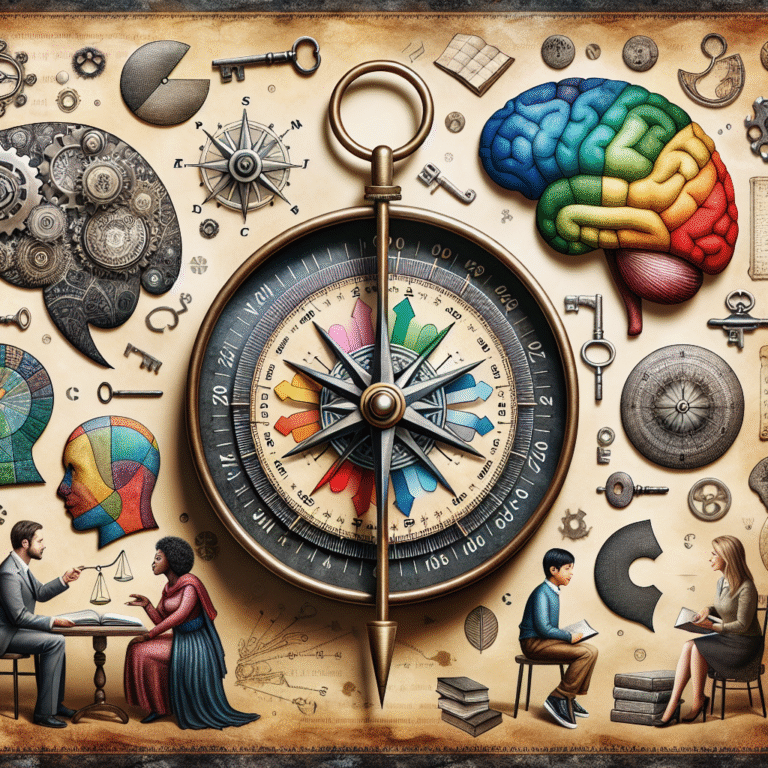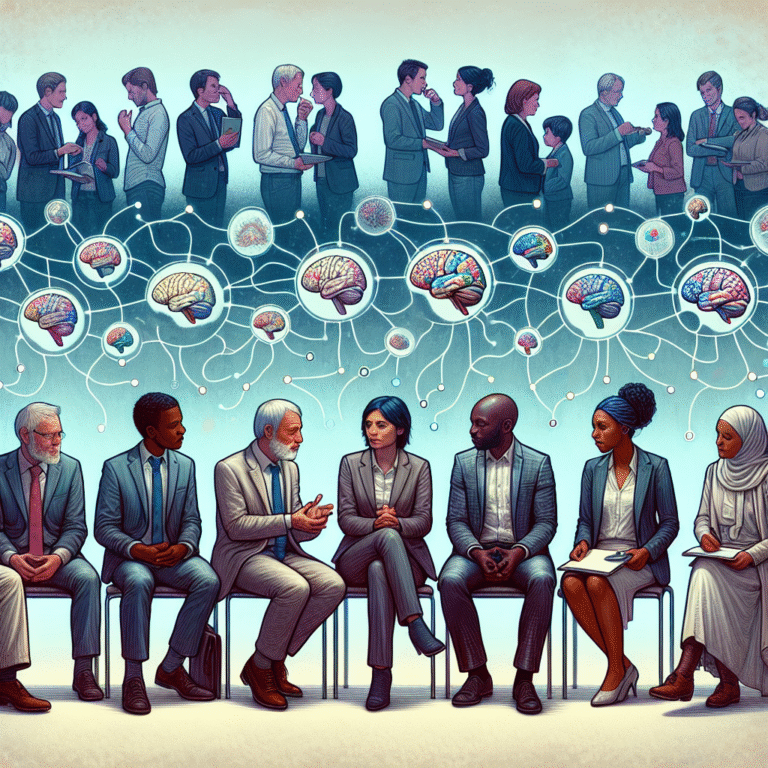
Introduction
In an age marked by information overload, how do we make decisions? The answer often lies in a powerful yet subtle force: social referencing. Whether we’re choosing a restaurant, selecting a movie to watch, or even deciding on a career path, we frequently look to others for guidance. "Trusting the Crowd: How Social Referencing Shapes Our Decisions" digs deep into this fascinating phenomenon, demonstrating how social influences can guide our choices in profound ways.
The Importance of Social Referencing
Social referencing isn’t merely a social experiment; it plays an essential role in our everyday lives. By understanding how it impacts our decisions, we can make more informed choices, avoid pitfalls, and even leverage this knowledge to enhance our personal and professional lives. In this article, we’ll explore the psychology behind social referencing, provide real-world case studies, and offer actionable insights to help you navigate the complexities of decision-making with confidence and clarity.
What Is Social Referencing?
Defining Social Referencing
At its core, social referencing involves looking to others—friends, family, or even anonymous online communities—for cues about how to behave or what to choose. This practice stems from our inherent desire to conform and fit into social norms. The phenomenon can be observed in various forms, from reviewing online products to gauging the best route to work based on traffic reports.
Why We Trust the Crowd
Humans are social creatures, and our decisions are heavily influenced by those around us. Trusting the crowd becomes a survival mechanism; we often assume that if many people agree on something, it must be correct. The implications stretch far beyond superficial choices, influencing everything from market trends to political opinions.
The Psychological Underpinnings of Social Referencing
The Bandwagon Effect
One of the most well-known phenomena is the "bandwagon effect," where people adopt behaviors or beliefs simply because others are doing so. This effect is especially pronounced in consumer behavior, where numerous positive reviews can lead to the assumption that a product is superior.
Cognitive Dissonance
When our choices conflict with the opinions of those around us, we experience cognitive dissonance—a psychological discomfort that often pushes us to align our decisions with social expectations. This phenomenon helps explain why we might choose a highly-rated salad bar over a lower-rated restaurant, even if we prefer the latter.
Real-World Applications
Case Study 1: Online Reviews
The rise of platforms like Amazon and Yelp illustrates how social referencing has transformed consumer behavior. A comprehensive study revealed that products with higher ratings saw a 70% increase in purchases, demonstrating the power of social proof.
| Rating | Percentage of Purchases |
|---|---|
| 1 Star | 13% |
| 2 Stars | 23% |
| 3 Stars | 45% |
| 4 Stars | 66% |
| 5 Stars | 90% |
Analysis: This chart shows how social referencing through ratings heavily influences consumer decisions, reinforcing the importance of "Trusting the Crowd" in various purchasing scenarios.
Case Study 2: Social Media Trends
Social media platforms are breeding grounds for social referencing. When hashtags trend or influencers promote products, they create a ripple effect, encouraging followers to adopt similar behaviors. For instance, the #MeToo movement exemplified how collective voices could shape societal perceptions and behaviors regarding sexual harassment.
Analysis: This case underscores the significant role social media plays in shaping public opinion and everyday choices, emphasizing the vital concept of relying on collective wisdom.
Case Study 3: Political Polling
In politics, polling data often acts as a barometer for public sentiment. Candidates rely on social referencing to gauge voter preferences. A presentation of poll results can create a bandwagon effect, leading undecided voters to align with a frontrunner based on perceived popularity.
Analysis: This illustrates how collective behavior can steer political landscapes, highlighting the need for voters to critically assess information beyond mere social consensus.
The Role of Digital Communities
Crowdsourcing and Decision-Making
In today’s digital age, platforms for crowdsourcing enable collective intelligence to guide decision-making, presenting a unique form of social referencing. Websites like Reddit and Quora offer insights from diverse individuals, often leading to more well-rounded decisions.
Trust and Anonymity
While trusting the crowd is essential, anonymity brings a unique twist to social referencing. Online platforms allow users to seek opinions without the pressure of social expectations. This can lead to more genuine feedback but also to misinformation and misleading trends.
Trusting the Crowd in the Workplace
Collaboration and Team Dynamics
In professional environments, social referencing influences collaboration and team dynamics. The phenomenon of groupthink can lead teams to prioritize consensus over critical thinking, which can hinder innovation.
Leadership and Influence
Effective leaders understand the dynamics of social referencing; they leverage it to cultivate a positive culture and encourage collaboration. When leaders model desired behaviors, employees are likely to follow suit, demonstrating the synergy between leadership and social referencing.
Strategies to Enhance Decision-Making
Critical Thinking
While trusting the crowd is beneficial, it’s crucial to maintain a critical mindset. Evaluating information, checking sources, and cross-referencing advice can lead to better decision-making outcomes.
Diverse Perspectives
Engaging with a wide array of viewpoints can refine decision-making processes. This approach incorporates diverse social references, minimizing the risk of echo chambers.
Balancing Intuition and Social Input
While social referencing is valuable, trust your instinct. Striking a balance between external opinions and personal intuition can lead to more authentic choices.
Conclusion
In a world where decisions are increasingly complex, understanding "Trusting the Crowd: How Social Referencing Shapes Our Decisions" is vital. By recognizing the influences of social referencing and learning how to navigate them, we empower ourselves to make more informed choices.
Whether it’s in everyday consumer behavior or significant life decisions, leveraging social insights can lead to enhanced outcomes. So the next time you find yourself weighing options, remember: while it’s valuable to trust the crowd, blending social input with your judgment creates the ultimate decision-making formula.
FAQs
1. What is social referencing?
Social referencing involves looking to others for cues about how to behave or what to choose, helping individuals make decisions based on social norms.
2. How does the bandwagon effect work?
The bandwagon effect occurs when people adopt behaviors or beliefs primarily because others are doing so, often seen in consumer behavior and social trends.
3. What role do online reviews play in decision-making?
Online reviews serve as a form of social proof, heavily influencing consumer purchasing decisions. Higher ratings typically lead to increased sales.
4. How can I improve my decision-making process?
Enhance your decision-making by engaging diverse perspectives, balancing intuition with social input, and employing critical thinking to evaluate information.
5. Why is it crucial to consider multiple viewpoints?
Considering multiple viewpoints minimizes the risk of echo chambers and enriches decision-making by integrating various insights and cultures.
By understanding the intricacies of trusting the crowd and enhancing our decision-making strategies, we can navigate the complexities of modern life with greater confidence and clarity. The collective insights of social referencing can and should empower us, transforming the way we approach choices across all facets of life.


